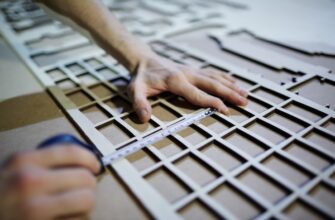Shelves installation

Measure the wall space before buying shelves. Use a tape measure to check the width, height, and depth needed. Mark the spots where brackets or supports will go with a pencil. If shelves hold heavy items, find wall studs with a stud finder–anchoring into wood prevents sagging or collapse.
Choose the right hardware for your wall type. Drywall requires anchors for stability, while concrete needs masonry screws. For floating shelves, check weight limits and use metal brackets if necessary. Pre-drill holes slightly smaller than your screws to avoid splitting wood or cracking plaster.
Level each shelf before securing it. Place a spirit level on top and adjust until the bubble centers. If installing multiple shelves, measure equal distances between them for a clean look. Test stability by applying light pressure–well-mounted shelves shouldn’t wobble or tilt.
Shelves installation in Houston
For sturdy and long-lasting shelves, choose materials that handle Houston’s humidity well–metal, treated wood, or moisture-resistant laminates work best. Avoid untreated particleboard, as it warps quickly in the local climate.
Finding the Right Installer

Houston has many skilled handymen and carpenters specializing in shelving. Check reviews on platforms like Yelp or Angi, and ask for proof of past projects. Reliable installers often offer free estimates and warranties on their work.
If you prefer DIY, measure your space carefully before buying materials. Stud finders help locate wall studs for secure mounting, especially in drywall-heavy Houston homes. Use anchors rated for at least 50 lbs if studs aren’t available.
Popular Shelf Styles in Houston

Floating shelves suit modern interiors, while industrial pipe shelves add a trendy look. For garages or storage rooms, heavy-duty wire shelving maximizes space. Local stores like Home Depot or Houston Hardwood carry a wide selection.
Permits aren’t usually needed for basic shelf installations, but check local codes if modifying load-bearing walls. For high shelves, consider hiring a professional–safety matters more than cost savings.
Keep shelves level with a laser level or traditional bubble level. Uneven installations look sloppy and risk dropping items. For glass shelves, use rubberized brackets to prevent slipping and reduce noise.
Features in Houston
Houston’s humid climate makes moisture-resistant materials like stainless steel or powder-coated metal ideal for shelves. These options prevent warping and rust, ensuring long-term durability.
Wall-mounted shelves work well in Houston’s smaller apartments, maximizing space without sacrificing style. Floating shelves in kitchens or living rooms add storage while keeping rooms open and airy.
For garages or outdoor storage, heavy-duty plastic or coated wire shelving handles heat and humidity better than untreated wood. Adjustable heights accommodate seasonal items like holiday decorations or tools.
Local stores like Houston Shelving Solutions offer custom installations with reinforced brackets for stability, especially in areas prone to storms. Their team provides free consultations to match shelving to room dimensions.
Open shelving in kitchens suits Houston’s modern home designs. Pair it with LED under-shelf lighting to highlight decor or simplify cooking in low-light areas.
For renters, freestanding units like the Elfa system from The Container Store allow flexibility without wall damage. They’re easy to disassemble and relocate.
FAQ
What tools do I need to install shelves?
You’ll need a drill, level, measuring tape, screws, wall anchors (if not mounting into studs), a pencil for marking, and a screwdriver. For heavy shelves, a stud finder is recommended.









